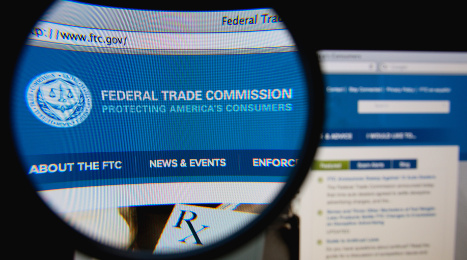While finance company executives know it’s important to originate vehicle installment contracts, they also understand it’s vital to keep those accounts current and monthly payments flowing into the company’s account.
In an analysis sent this week to SubPrime Auto Finance News, BillingTree head of corporate marketing Dave Yohe previewed three trends that will impact payments in 2016.
1. EMV? The next step is EMVco compliance and tightened CNP security
In 2015, EMV — which stands for Europay, MasterCard and Visa — was the “hot topic” as the industry looked to the liability shift on Oct. 1. Reports say the U.S. is migrating slowly to the new chip-and-PIN payment method with MasterCard reporting 46 percent of Americans had not received chip-and-PIN cards, and only 41 percent of merchants had installed terminals to accept them.
But as take-up of the new system increases, so will the importance of new compliance measures set up by EMVco — the consortium that manages EMV standards.
We predict a double edged sword for vendors in 2016. They will have to make sure they comply with EMVco standards for all payment methods — including contact, contactless, mobile and tokenization. At the same time security for card-not-present payments needs to be as tight as possible, as industry opinion predicts fraud moving towards these types of transactions due to the EMV liability shift.
2. Millennials disrupting traditional banking
In the 2015 Banking Industry Growth Strategy Survey, Bank Director found 60 percent of banking executives felt they didn't have the right products, services and delivery methods to address a “decidedly untraditional digital generation.”
In the payments space in 2016 as the number of millennials taking out loans, buying houses and signing up for auto finance increases, organizations that offer 'Generation Y' their preferred payment method will gain a competitive edge. This means offering them a path of least resistance at the payment stage — which means offering digital payment channels such as online portals, mobile and automatic interactive voice response.
3. Continued FinTech development
With the disruptive influences of a changing regulatory landscape and millennials' payment preferences, financial technology will continue its rapid development.
The U.S. is the global leader in Fintech investment according to Statista research, with $3.97 billion invested in 2014. We will see the emergence of modernized gateways to support the latest banking and compliance rules alongside an appetite for modern technology and devices.
Financial technology will be developed to support traditional and non-traditional channels in order to appeal to the widest possible customer range in 2016.
This week, Wise F&I announced the hiring of Amy Counts as an account executive.
The company indicated Counts is responsible for business and relationship development with independent agents by growing Wise F&I product penetration.
Counts has more than 18 years of experience in the automotive industry working for Reynolds and Reynolds and RouteOne in roles including marketing, management, software training, technology implementations and business-to-business sales.
Counts received several honors during that time including:
— Core Value Award
— National Association of Minority Automobile Dealers Association Appreciation Award
— 300 Sales Club
— Variable Operation Specialist of the Year.
“We are excited to have Amy as part of our team and feel she will be an asset to support our business partners,” Wise F&I president Matt Croak said.
Counts helps to round out the Wise F&I sales team and is part of their continued growth. Over the past five years, Wise F&I has tripled in employee size.
Wise F&I has expanded its product offerings and technology capabilities, including eContrating, eRemitting and menu system integration.
Covington — a law firm with a global footprint and whose stable of professionals includes former Attorney General Eric Holder, NFL Commissioner Paul Tagliabue and Homeland Security Secretary Michael Chertoff — created a new consumer financial services practice aimed at assisting clients with Consumer Financial Protection Bureau investigations, examinations and enforcement actions.
Leading this new practice will be co-chair Eric Mogilnicki, who has joined the firm as a partner in its Washington, D.C., office. Andrew Smith, who served as a senior financial services lawyer at the Federal Trade Commission prior to joining Covington, will also lead the newly formed group.
Covington highlighted that Mogilnicki has the combination of four years’ experience at the center of some of the nation’s most critical public policy debates as well as more than 20 years of experience advising and representing financial institutions. In addition to his extensive experience in private practice, Mogilnicki previously served as chief of staff to Sen. Edward Kennedy when the CFPB was designed and has been a leader within the private bar on CFPB issues since its inception.
The firm also mentioned Mogilnicki’s CFPB experience includes counseling clients facing informal requests for information from the bureau to providing financial institutions and other interested parties with product reviews, mock examinations and other guidance prior to the commencement of CFPB examinations, representing entities in responding to CFPB civil investigative demands, negotiating consent orders with the CFPB, and assisting financial institutions in complying with CFPB consent orders.
“The combination of Eric’s very visible and successful CFPB enforcement experience with Andrew Smith’s prominence on consumer financial services advisory and policy matters positions Covington as an industry leader in the consumer financial services space,” said John Dugan, chair of the firm’s financial institutions group and former U.S. Comptroller of the Currency.
“As the CFPB is coming of age, we now have critical mass of experience in significant CFPB enforcement and advisory matters in a very active area for financial services providers,” Dugan continued.
Prior to entering private legal practice, Mogilnicki served as Assistant Attorney General in Massachusetts from 1987 to 1991. During that time, he engaged in trial and appellate practice in federal and Massachusetts courts.
Prior to law school, he served as a legislative assistant to U.S. Rep. Gerry Studds. Mogilnicki received his B.A. and J.D. degrees from Yale University.
“Covington presents a wonderful opportunity to build a more substantial CFPB enforcement practice at a key point in the evolution of the agency’s activities,” Mogilnicki said.
“The depth of Covington’s regulatory subject matter expertise, counseling practice, and related enforcement experience is unmatched, and I look forward to helping the firm build its practice further in this area,” he went on to say.
DominionACCESS, a division of Dominion Dealer Solutions, recently finalized integration of its ACCESS Dealer Management System with RouteOne’s eContracting platform.
Officials explained this new collaboration can streamline the contract and payment funding processes for their dealership customers nationwide.
“A major focus for Dominion DMS this year has been improving vendor integrations within the ACCESS dealer management system,” Dominion DMS president Van Koppersmith said.
“Expanding on the existing relationship with RouteOne to include eContracting was important in meeting that goal,” Koppersmith continued. “RouteOne eContracting is used by key finance sources nationwide and provides an excellent solution for our ACCESS customers asking for faster contract funding.”
The companies indicated it currently takes weeks before the dealership is paid once a vehicle is financed. Fortunately, through DominionACCESS’s seamless integration with RouteOne eContracting, critical contract documents can be shared between dealers and finance sources within minutes.
Officials believe this accelerated funding process can allow dealerships to receive payments faster, regardless of whether the vehicle’s financing is retail or lease.
Furthermore, the companies insisted eContracting can allow finance managers to significantly streamline their processes. It can automate critical checkpoints by ensuring that required fields or signatures are entered and contract requirements are met during the review process.
“Enhancing our integration with DominionACCESS to include eContracting brings dealers all the benefits of eContracting, within a workflow they are accustomed to,” said Mike Jurecki, chief executive officer at RouteOne.
“Integration allows dealers the ability to choose the best systems for their business model and still seamlessly participate in the latest technologies available,” Jurecki added.
Dominion Dealer Solutions offers two DMS solutions to the automotive marketplace: DominionACCESS and the Microsoft DynamicsAX-based DominionDMX.
For more information on how DominionACCESS can supply RouteOne eContracting to your dealership, call (877) 421-1040 or visit www.drivedominion.com/support/dms.
The Federal Trade Commission is ramping up its efforts to regulate dealerships on a pair of fronts to begin 2016.
Remember what the FTC dubbed Operation Steer Clear? It was the commission’s action that punished 10 dealerships back in 2014 as part of the regulators’ nationwide sweep focusing on misleading advertising associated with the selling, financing, and leasing of vehicles.
To clarify exactly what the FTC deems to be wrongdoings by dealers and retailers in general, the agency recently issued an enforcement policy statement explaining how established consumer protection principles apply to different advertising formats, including “native” ads that look like surrounding non-advertising content.
In the Enforcement Policy Statement on Deceptively Formatted Advertisements, the FTC explained the general principles the regulators considers in determining whether any particular ad format is deceptive and violates the FTC Act.
The policy statement affirms the long-standing consumer protection principle that advertisements and promotional messages that promote the benefits and attributes of goods and services should be identifiable as advertising to consumers.
“The commission has long held the view that advertising and promotional messages that are not identifiable as advertising to consumers are deceptive if they mislead consumers into believing they are independent, impartial, or not from the sponsoring advertiser itself,” FTC officials said in the statement.
“Knowing the source of an advertisement or promotional message typically affects the weight or credibility consumers give it. Such knowledge also may influence whether and to what extent consumers choose to interact with content containing a promotional message,” they continued.
The entire statement from the FTC can be downloaded here.
FTC seeks public comment on proposed survey of consumers regarding their experiences buying & financing
In other regulatory news, the FTC is seeking public comment on a proposed qualitative survey of consumers to learn about their experiences in buying and financing vehicles at dealerships.
The regulator explained the comments will be considered before the FTC seeks clearance for the survey from the Office of Management and Budget, in compliance with the Paperwork Reduction Act.
“The FTC is committed to protecting consumers in automobile-related transactions,” officials said.
Since 2011, the agency has brought more than 25 cases in this area, including a law enforcement sweep of 10 actions against dealers for deceptive advertising, and a federal-state effort that yielded more than 200 actions for fraud, deception, and other illegal practices.
The regulator explained the survey is designed to assist the FTC by providing useful insights into consumer understanding of the purchasing and financing process at the dealership.
The FTC invites comments on whether the proposed consumer survey, which will include
— Consumer interviews and receipt of consumers’ purchase and finance documents, is necessary and useful
— The accuracy of estimates of the burden on consumers to be surveyed
— Ways to enhance the quality of the information to be collected
— Ways to minimize the burden of collecting information
More information about the FTC’s survey plans can be found here.
The Association of Finance & Insurance Professionals offered some clarity in response to the Federal Reserve Board’s recent announcement regarding thresholds for the Truth in Lending Act as well as the Consumer Leasing Act.
AFIP executive director David Robertson explained that the $56,400 threshold will remain the same for 2016 as will the accepted practice for processing transactions in excess of that amount.
Robertson also emphasized the $54,600 maximum amount to qualify for installment sale and consumer lease protection under TILA and CLA, respectively, is not based on the selling price of the vehicle, but on the “amount financed” for a credit sale and the “total contractual obligation” for a lease.
“The total contractual obligation includes non-refundable amounts a lessee is contractually obligated to pay under the lease, but excludes the residual value, purchase option price and amounts such as taxes, license and registration fees collected by the lessor but paid to third parties,” Robertson said.
“However, most dealers treat all transactions as if they fall under TILA and CLA, regardless of the dollar amount involved,” he continued.
Under the two regulations, Robertson also mentioned a consumer transaction is one in which the vehicle is used “primarily” for household, family or personal use.
“Consumer transactions exceeding the $54,500 threshold may be recorded on a TILA compliant installment sale agreement or a Consumer Leasing Act compliant lease agreement,” he said.
If dealers have more questions or need further clarification, Robertson can be reached at [email protected]. For information about AFIP, visit www.afip.com.
With today marking the last installment of SubPrime News Update for 2015, we conducted our own portfolio analysis to uncover what turned out to be the top 10 stories of the year stemming from online traffic to our website.
Not surprisingly, nearly all of the reports had some connection to a regulator; be it at the state level or the Consumer Financial Protection Bureau.
As SubPrime Auto Finance News joins the rest of the industry in gearing up for 2016, here’s a recap of the top 10 stories of the year:
10. CFPB suing SNAAC over debt collections
WASHINGTON, D.C. (June 17) — While officials said the complaint is not a finding or ruling that the finance company has actually violated the law, the Consumer Financial Protection Bureau sued Security National Automotive Acceptance Co. (SNAAC) for aggressive debt collection tactics against servicemembers.
In a complaint filed in federal court, the CFPB alleges that SNAAC used a combination of illegal threats and deceptive claims in order to collect debts. The CFPB said it is seeking compensation for harmed consumers, a civil penalty and an order prohibiting the company from committing future violations.
Through this lawsuit, the bureau indicated that it seeks to stop the alleged unlawful practices of the company. The bureau also requested that the court impose penalties on the company for its conduct and require that compensation be paid to consumers who have been harmed.
9. This year’s SubPrime Auto Finance Executive of the Year
CARY, N.C. (Oct. 26) — SubPrime Auto Finance News announced this year’s recipient of the SubPrime Auto Finance Executive of the Year Award, presented by Black Book Lender Solutions. The accolade is going to Dan Ulatowski, who is the chief sales officer at Credit Acceptance, one of the leading special finance companies in the industry.
Ulatowski has been with the company since 1996, holding a variety of different roles within that span. Credit Acceptance tapped him for his current post last January as the company has seen its GAAP net income per share grow at a compounded annual rate of 20.4 percent, with an average annual return on equity of 21.4 percent since becoming publicly traded 22 years ago.
8. 6 components of Santander’s latest enforcement action from Federal Reserve
WASHINGTON, D.C. (July 7) — Within a seven-day span that included the co-founder and chief executive officer resigning and the chief financial officer being promoted to take his place, Santander Consumer USA’s parent company reached an enforcement action agreement with the Federal Reserve Bank of Boston.
Fed officials broke down a series of tasks Santander Holdings USA must complete within the next 60 days that fell under the categories of:
— Board oversight
— Risk management
— Capital planning
— Liquidity risk management
— Compliance with laws and regulations
— Progress reports
7. House passes CFPB reform bill
WASHINGTON, D.C. (Nov. 19) — To the delight of many in the automotive industry, the House of Representatives voted on and passed a bill aimed at altering the Consumer Financial Protection Bureau’s handling of indirect auto financing.
With a vote of 332 to 96, the House passed what the American International Automobile Dealers Association labeled a “common sense piece of legislation,” otherwise known as the Reforming CFPB Indirect Auto Financing Guidance Act.
If it passes through the Senate and is signed by the president in its current state, the legislation will amend the Consumer Financial Protection Act of 2010.
6. DOJ Issues CID to Springleaf about OneMain acquisition
EVANSVILLE, Ind. (May. 1) — Coinciding with the company offering more than 22.7 million shares of common stock to help to pay for the acquisition, Springleaf Holdings acknowledged that its intended purchase of fellow subprime institution OneMain Financial Holdings is running into some regulatory hurdles.
In a filing sent to the Securities and Exchange Commission, Springleaf indicated it was notified by the Antitrust Division of the U.S. Department of Justice on March 22, stating that the agency would be reviewing the proposed transaction, which was first announced back on March 2 and included an aggregate purchase price of $4.25 billion in cash.
Company officials explained that DOJ would be reviewing the proposed acquisition from an antitrust perspective.
5. Fifth Third Bank ordered to pay $18M, reduce mark-up to 1.25% or less
WASHINGTON, D.C. (Sept. 28) — First Ally Financial, then American Honda Finance Corp., and now, the Consumer Financial Protection Bureau added Fifth Third Bank to its list of recipients of multi-million-dollar actions for what the regulators determined to be discrimination in vehicle financing.
As part of its $18 million penalty in the auto space, the CFPB and Department of Justice ordered Fifth Third Bank to substantially reduce or eliminate entirely dealer discretion. Officials told the bank to pay that $18 million to “harmed” African-American and Hispanic borrowers. Meanwhile the dealer participation stipulations included in the agreement are similar to what Honda Finance is being forced to do.
According to second quarter data from Experian Automotive, Fifth Third Bank tied for No. 15 in overall market share, holding 0.99 percent with fellow Midwestern commercial bank Huntington and USAA.
4. CFPB action against Westlake tops $44M
WASHINGTON, D.C.(Oct. 1) — The second significant Consumer Financial Protection Bureau enforcement action of the week in the auto finance space hit one of the largest players in the subprime market — Westlake Financial Services.
CFPB punished Westlake and its auto title lending subsidiary Wilshire Consumer Credit for pressuring borrowers using what officials deemed to be illegal debt collection tactics.
The bureau indicated that it found Westlake to have committed several infractions, including:
— Deceived consumers by calling under false pretenses and using phony caller ID information
— Falsely threatened to refer borrowers for investigation or criminal prosecution
— Illegally disclosed information about debts to borrowers’ employers, friends, and family.
3. $500K ad campaign against CFPB launches
WASHINGTON, D.C. (Nov. 10) — For dealership principals and finance company executives who might be watching the fourth Republican presidential primary debate, they might not want to step away during a commercial break: an advertisement is planned to highlight the position against the Consumer Financial Protection Bureau.
The American Action Network (AAN) — an organization that says it creates, encourages and promotes center-right policies based on the principles of freedom, limited government, American exceptionalism and strong national security — is launching a $500,000 ad campaign against the CFPB.
AAN officials explained the national ad buy will run throughout the evening on Fox Business, the host of the fourth GOP primary debate.
2. 22 vehicles that might work better for longer-term contracts
IRVINE, Calif. (Dec. 16) — With contract terms continuing to lengthen, perhaps this year’s contingent of Best Resale Value Awards from Kelley Blue Book might provide finance companies with vehicles to enhance underwriting and origination decisions.
The 2016 model-year brand and category winners of the annual award program recognizes vehicles for their projected retained value through the initial five-year ownership period.
“KBB Best Resale Value Award winners are great for long-term financing because they increase the odds that the vehicle will have equity should the customer or the finance company have to sell the asset prematurely,” said Eric Ibara, director of residual values at Kelley Blue Book.
1. NY regulators shut down Condor Capital
NEW YORK (Jan. 2) — Condor Capital is no longer originating and servicing vehicle installment contracts for dealers who cater to subprime customers in New York or more than two dozen other states.
Just before the holiday, the New York Department of Financial Services submitted a final consent judgment to be approved by the Empire State’s court system to settle the department’s lawsuit against Condor Capital that first sprouted last spring.
New York Superintendent of Financial Services Benjamin Lawsky sent the order against, Condor, a subprime auto finance company based in Long Island, and its sole shareholder, Stephen Baron.
Among other violations, Lawsky claimed the defendants deceptively retained millions of dollars owed to vulnerable borrowers and overcharged them for interest in violation of the Truth in Lending Act.
Wolters Kluwer Financial Services teamed with F&I Express this week to integrate F&I Express eContracting with its AppOne indirect loan origination platform.
Officials highlighted the joint solution is designed to create a comprehensive auto finance platform for dealers to originate compliant auto loans, verify pricing of aftermarket products, including extended warranties and vehicle accessories and complete the contract process electronically.
Through AppOne, dealers have access to F&I Express eContracting via single sign-on and will see the same user interface and navigation features currently available in their standard F&I Express log-in. All the capabilities of the eContracting solution have been integrated into AppOne to provide automotive dealers a single point of access.
From AppOne, dealers can electronically create compliant auto loan packages, verify the pricing of aftermarket products, and eContract to completion for customers.
“Consumers purchasing a vehicle today, especially the next generation of automotive buyers, expect the buying process to be quick and seamless,” F&I Express president and chief executive officer Brian Reed said.
“The combination of F&I Express eContracting with AppOne gives auto dealers the tools to meet customers’ buying expectations while simplifying the financing process,” Reed continued. “The joint solution does this by integrating the verification of aftermarket product pricing and contract development into the loan origination platform.”
AppOne can offer automotive dealers a single platform to easily and quickly create compliant loan packages and find financing for customers. Its Web-based interface connects directly to dealer management systems (DMS) to automate the transfer of data and the completion of loan applications, or AppOne can be used as a standalone portal for dealers to manually complete loan applications electronically.
By making the loan application process electronic, AppOne is able to help dealers quickly find a lender partner and secure financing for their customers.
Dealers can submit loan packages to multiple lenders for review and approval with a single click from AppOne. They also have access to a network of lenders who are looking to finance automotive, marine, recreational vehicle and other retail installment contracts.
The integration of F&I Express eContracting expands AppOne’s auto finance capabilities to give dealers the capability to electronically quote, price and complete contracts for aftermarket products.
“U.S. auto dealers have had a great year,” said Brad Fleener, senior director and general manager of indirect lending at Wolters Kluwer Financial Services.
“To build on this momentum, they will have to manage their growth opportunities against today’s continually evolving regulatory environment,” Fleener continued. “Our alliance with F&I Express gives auto dealers a comprehensive auto finance and compliance platform to grow their business across the entire sales lifecycle, from the vehicle to aftermarket products.”
F&I Express eContracting is accessible through AppOne to all AppOne dealer customers at no additional cost. Marine, power sports and recreational vehicle dealers will receive access to the integrated functionality early next year.
More information on AppOne is available here.
Occurring in part because of the concentration of finance companies in the area, the National Automotive Finance Association is hosting the next in-person session to create another cohort enrolled in its Consumer Credit Compliance Certification program in the Dallas area.
The NAF Association will conduct the opening module of the four-part training endeavor at the Dallas/Fort Worth Marriott Solana in Westlake, Texas on Jan. 21-22.
Another large contingent of graduates completed the program just ahead of Used Car Week in Scottdale, Ariz.
The NAF Compliance Certification Program has been a runaway success story,” said Hudson Cook partner Tom Hudson, who was part of the group that crafted the program curriculum.
After two days of classroom style learning in Texas to complete Module 1, participants will move onto the 29 self-paced, Web-based sessions covering federal and state laws and regulations that govern the auto financing business.
Successful testing throughout the program is necessary before progressing in the program.
The certification of Compliance Professional awarded upon completion of Module 4, a live classroom session covering the Consumer Financial Protection Bureau.
“A critical part of a compliance management system is staffing it with qualified compliance personnel,” NAF Association executive director Jack Tracey said.
“A company having their compliance officer(s) certified through a comprehensive educational program is a clear demonstration of the importance the organization places on compliance,” Tracey continued.
This program is available to the staff of NAF Association member companies at the price of $2,000 per person and non-member companies at $3,000 per person.
For more information, visit nafassociation.com or send a message to [email protected].
The American Financial Services Association launched a completely redesigned website this week.
AFSA officials highlighted their new website, designed in partnership with Engage Software headquartered in St. Louis, has a modern design and is constructed to be user friendly.
“AFSA’s goal was to develop a site that will become the go-to source for consumer finance news, updates and knowledge,” they said.
AFSA members are encouraged to begin exploring the redesigned space. They can:
• Stay current with Federal initiatives through recent legislation and testimony, research compliance and legal issues.
• Research state initiatives using AFSA Track; direct advocacy.
• Access resources such as white papers, briefs, and AFSA’s talking points, both at the state and federal level.
• Explore how to "Get Involved" by attending events, participating on committees or sections/divisions, advertising with AFSA, sponsoring an event or finding a fellow member.
• Learn about AFSA University, Branch Operations Basics (BOB), Webinars, AWARE, MoneySkill, The Edge, Leadership Development at UNC and the AFSA Education Foundation
• Members can manage their personal profile to update contact information, manage contacts within their company, access committee areas and view historical purchases.
• Take advantage of AFSA’s online Buyers Guide to find relevant products and services provided by AFSA’s business partners.
AFSA also indicated it will be launching redesigned websites for all of its conferences, including:
— The Vehicle Finance Conference and Expo
— The Independents Conference and Expo
— The Credit Summit for Fixed Income Investors
— The State Government Affairs Forum
— Annual Meeting.
The Vehicle Finance Conference and Expo website is currently live and is being updated with the latest information about the conference that is for March 29-31 in Las Vegas.
Officials added the AFSA Education Foundation and MoneySKILL websites also will be updated early next year.












